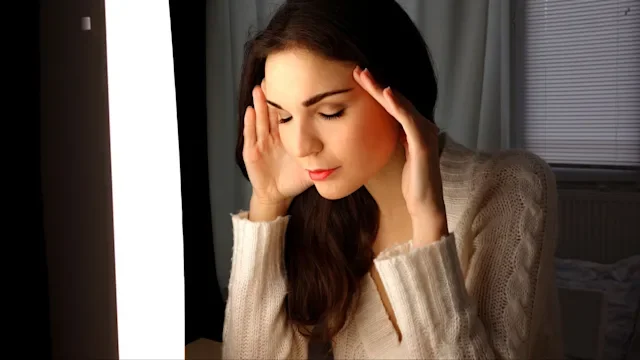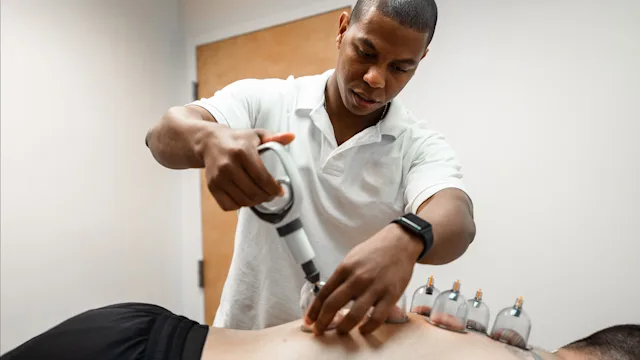Key takeaways:
Cannabidiol (CBD) is a chemical that comes from the cannabis plant. It’s sold as a supplement for various health conditions.
There’s a small amount of evidence that CBD may help with symptoms of depression. But it’s too early to say for sure whether or not it works.
So far, CBD only has one proven use: treating certain types of seizures.
CBD (cannabidiol) has received a lot of attention in recent years because of its reported ability to ease pain and help with relaxation. It’s even advertised as a treatment for mental health conditions like anxiety and depression.
But in reality, there’s not a lot of research yet to support these uses. Read on to learn more about what we know so far about using cannabidiol (CBD) for depression.
What is CBD?
Cannabidiol, or CBD for short, is one of over 400 chemicals found in the cannabis plant, which is also sometimes referred to as hemp or marijuana. THC (tetrahydrocannabinol) is the most active ingredient in the plant. That’s the one many people associate with cannabis.
Search and compare options
Although CBD and THC are chemicals derived from the same plant, they have somewhat different effects. The biggest difference is that CBD doesn’t cause a “high” like THC does. THC can cause feelings of euphoria, relaxation, and increased appetite. CBD’s effects tend to be less dramatic, like relaxation and pain relief.
What is CBD used for?
So far, the only thing CBD is proven to help with is seizures (as a prescription medication called Epidiolex).
But researchers are currently exploring whether CBD can help with many other conditions, including:
Research also suggests that CBD may help treat some mental health conditions, too, including:
Unfortunately, it’s too early to say whether CBD works for any of these conditions. But many clinical trials are currently underway.
Does CBD help with anxiety? Here’s what we know so far about CBD and anxiety.
How does CBD oil make you feel? Three people share their experiences with CBD.
Can CBD oil help you sleep better? Take a look at what the evidence says about CBD and sleep.
Does using CBD for depression work?
Right now, we don’t know for sure if CBD helps with depression. Some studies in animals show that it might help. But there hasn’t been much research done in humans yet.
It’s possible that CBD might work with the endocannabinoid system — or possibly affect your serotonin levels. Both of these are involved in mood.
What research has been done on CBD for depression?
Several research studies have looked at whether CBD can help with depression. Here are a few examples:
A 2025 study found that CBD reduced anhedonia in socially isolated mice. Anhedonia is the inability to experience pleasure. It’s a common symptom of depression.
A 2019 study examined CBD’s effects on depression in rats. The researchers had rats consume 30 mg/kg of CBD. Then they evaluated the rats’ coping abilities while completing a test. The researchers concluded that CBD helped reduce helplessness in the rats, another common symptom of depression.
A 2020 study exposed rats to various stressors while treating them with CBD over a 28-day period. The researchers evaluated the rats for depression and anhedonia and found that CBD helped decrease these symptoms.
A 2018 study in humans had medical cannabis users track their symptoms and doses over time. Cannabis helped to reduce symptoms of depression, anxiety, and stress. The researchers also found that a high amount of CBD (more than 9.5%) and a low amount of THC (less than 5.5%) produced the largest improvements in depression.
Read more like this
Explore these related articles, suggested for readers like you.
Overall, the research on CBD seems to suggest that it might be helpful in reducing depression. But again, we just don’t have a lot of good-quality research in humans yet.
Can CBD make you depressed?
It’s not clear how CBD affects depression — including whether or not it can make it worse. But we do know that CBD side effects can be similar to some symptoms of depression, including appetite changes and fatigue.
Can I take CBD with antidepressants?
CBD can interact with many common medications, including antidepressants like citalopram (Celexa) and fluoxetine (Prozac). If you’re currently taking medication for depression, talk to your prescriber about whether it's OK to use CBD products at the same time.
Is CBD safe?
We don’t know for sure. According to the National Institutes for Health (NIH), over-the-counter (OTC) CBD may “possibly” be safe when taken appropriately under medical supervision. But the truth is that we still have a lot to learn about how CBD affects your body.
The CDC also warns that CBD isn’t risk free. It can cause side effects such as:
Dry mouth
Low blood pressure
Drowsiness
Lightheadedness
Diarrhea
Appetite changes
There’s also evidence that CBD may be linked to liver problems.
Who should avoid taking CBD?
Some people should avoid taking CBD, including:
Women who are pregnant or nursing
People with liver disease
CBD is also unsafe to take with certain medications, especially medications that affect the liver.
Remember: You should always speak to a healthcare professional before taking CBD.
What is the best way to take CBD?
CBD is available in several different forms, including:
Vapor
Nasal sprays
Capsules
Gummies
Creams
It’s not clear what type of dosage is best for CBD for depression.
And keep in mind: CBD products available OTC aren’t regulated by the FDA. That means that there are no guarantees when it comes to ingredients, strength, or purity. Your best bets are to look for products from a trusted manufacturer or to purchase directly from a state-regulated dispensary.
Frequently asked questions
It’s not clear. Some research studies have shown that CBD might help with anxiety. But just like depression, there’s not enough good-quality evidence yet to say for sure. Read more about what we know so far in our GoodRx guide to CBD and anxiety.
In 2018, the federal government passed the Farm Bill. This made it legal to sell hemp products like CBD with certain restrictions. However, CBD products are still illegal in some states.
Addiction is when you keep using a substance, even if it’s causing problems in your life. According to the World Health Organization, CBD doesn’t have the potential for misuse. This may be because unlike the chemical THC found in cannabis, pure CBD doesn’t cause a “high.”
But even though pure CBD isn’t considered to be an addictive substance, many CBD products do contain THC — which can definitely be addictive.
It’s not clear. Some research studies have shown that CBD might help with anxiety. But just like depression, there’s not enough good-quality evidence yet to say for sure. Read more about what we know so far in our GoodRx guide to CBD and anxiety.
In 2018, the federal government passed the Farm Bill. This made it legal to sell hemp products like CBD with certain restrictions. However, CBD products are still illegal in some states.
Addiction is when you keep using a substance, even if it’s causing problems in your life. According to the World Health Organization, CBD doesn’t have the potential for misuse. This may be because unlike the chemical THC found in cannabis, pure CBD doesn’t cause a “high.”
But even though pure CBD isn’t considered to be an addictive substance, many CBD products do contain THC — which can definitely be addictive.
The bottom line
CBD may possibly be safe and non-addictive, especially when used under medical direction. But the truth is: There’s not much evidence yet that it works for any health condition, except for certain types of seizures. And even though there have been some promising studies, we just don’t know yet how well CBD works for treating depression.
If you’re interested in trying CBD, talk to a healthcare professional. They can help you understand the potential risks and benefits of trying CBD for depression, as well as your other treatment options.

Why trust our experts?



References
Atakan, Z. (2012). Cannabis, a complex plant: Different compounds and different effects on individuals. Therapeutic Advances in Psychopharmacology.
Centers for Disease Control and Prevention. (2025). About CBD.
Cuttler, C., et al. (2018). A naturalistic examination of the perceived effects of cannabis on negative affect. Journal of Affective Disorders.
do Nascimento, G. C., et al. (2019). Cannabidiol increases the nociceptive threshold in a preclinical model of Parkinson's disease. Neuropharmacology.
Gáll, Z., et al. (2020). Effects of chronic cannabidiol treatment in the rat chronic unpredictable mild stress model of depression. Biomolecules.
Gray, R. A., et al. (2020). The proposed mechanisms of action of CBD in epilepsy. Epileptic Disorders.
Grinspoon, P. (2024). Cannabidiol (CBD): What we know and what we don't. Harvard Health Publishing.
Kim, S. H., et al. (2019). A review on studies of marijuana for Alzheimer’s disease – focusing on CBD, THC. Journal of Pharmacopuncture.
Kircik, L. H. (2019). What’s new in the management of acne vulgaris. Cutis.
Lucindo, M. S. S., et al. (2024). Chronic cannabidiol administration modulates depressive and cognitive alterations induced by social isolation in male mice. Behavioural Brain Research.
McGuire, P., et al. (2018). Cannabidiol (CBD) as an adjunctive therapy in schizophrenia: A multicenter randomized controlled trial. The American Journal of Psychiatry.
MedlinePlus. (2024). Cannabidiol (CBD).
Naftali, T. (2020). An overview of cannabis based treatment in Crohn’s disease. Expert Review of Gastroenterology & Hepatology.
Paulus, V., et al. (2022). Cannabidiol in the context of substance use disorder treatment: A systematic review. Addictive Behaviors.
Seltzer, E. S., et al. (2020). Cannabidiol (CBD) as a promising anti-cancer drug. Cancers.
Shbiro, L., et al. (2018). Effects of cannabidiol in males and females in two different rat models of depression. Physiology & Behavior.
Skelley, J. W., et al. (2019). Use of cannabidiol in anxiety and anxiety-related disorders. Journal of the American Pharmacists Association.
Überall, M. A. (2020). A review of scientific evidence for THC:CBD oromucosal spray (nabiximols) in the management of chronic pain. Journal of Pain Research.
U.S. Food and Drug Administration. (2019). Hemp production and the 2018 Farm Bill.
Vigil, J. M., et al. (2018). Effectiveness of raw, natural medical cannabis flower for treating insomnia under naturalistic conditions. Medicines.
Weiner, S. (2023). CBD: Does it work? Is it safe? Is it legal? Association of American Medical Colleges.
World Health Organization. (2017). Drugs (psychoactive): Cannabidiol (compound of cannabis).
Zarazúa-Guzmán, S., et al. (2024). An overview of major depression disorder: The endocannabinoid system as a potential target for therapy. Basic & Clinical Pharmacology & Toxicology.
Zehra, A., et al. (2018). Cannabis addiction and the brain: A review. Journal of Neuroimmune Pharmacology.

















